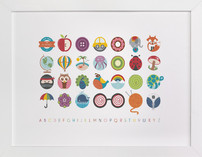
We've all heard the stories about big, best-selling novels that were initially rejected—often repeatedly. But when you're facing your own rejection letters, it's a whole new story (pardon the pun). I faced probably 100 rejections over the course of a year when I was seeking an agent/publisher (I didn't actually go back and count—I'm not a masochist). It was sobering, to say the least. But I had to quickly learn to grow a thick skin and find a way to turn what seemed like endless rejection into something positive. Rejection actually teaches you how to stop being rejected! Here's how I handled it and eventually found the perfect fit for my novel, Fire of the Sea:
1. RETHINK YOUR APPROACH
After I got over the initial shock that anyone could turn down this obviously perfect 5-star piece of literature, I realized something a bit sobering. I'd been querying my top choices for agents right out of the gate. BIG MISTAKE. No one had requested my manuscript yet—not even a partial—which meant my query needed work. When I took a second look at my query, I realized it could be much stronger. Here I had been emailing my top agent choices with a lukewarm query letter! What I should have been doing was testing the waters a bit more before swimming with the sharks. I wanted them to take my bait, not eat me alive!
2. TURN REJECTION NOTES INTO EDIT NOTES
Once I had polished my query, I started to get requests for my partial—and eventually full—manuscript. I started to take notes of patterns in my rejection. Then I decided which concerns were significant enough for me to address. I had two main complaints. The first was my point of view, which is a subjective complaint, so I knew I didn't need to go rewriting my whole story. The second was that my story was starting too slow. At this point I had been submitting for about three months with varying response. I knew right away I needed to restructure the first third of my novel. So I put everyting on hold, and revised my manuscript.
3. RESPOND POLITELY WHEN APPROPRIATE
It's not always proper form to respond to an agent or publisher when they have rejected your work. If you send a query, and they pass, DO NOT reply! But what if they've been reading your full or partial manuscript for the last three weeks? If the agent or publisher offers notes with their rejection, respond with a positive and appreciative email. I actually had agents request that I resubmit my full manuscript (with edits per their request) when I replied to thank them for their suggestions, and showed intent to incorporate their notes.
4. DISCOVER WHO YOU REALLY WANT TO WORK WITH
In almost every scenario, a rejection shouldn't be taken personally. In fact, it helps you learn who you really want to be working with! There were agents I thought were my dream agents. WRONG. I realized quickly that we didn't share the same vision for my novel. I wanted someone who would love my book, and love to promote it. Ultimately, rejection lead me to do research into smaller publishers, which landed me with the wonderful Juanita Samborski of 48fourteen Publishing.
5. LET REJECTION MAKE YOU A STRONGER PERSON
Have you had a rejection letter? Even just one little sad email? Welcome to the club! You are now one of the elite group of writers who took the plunge and risked rejection to get their work out there. Now take it one step further and don't give up! Keep persisting. Revise and resubmit. The more you submit your work, the more you'll experience rejection, and the more you will learn what to do right the next time you send out that query letter! And guess what... Once you do publish your book, you'll have to face all those comments on Amazon (hopefully all five stars, of course). ;)




No Comments Yet, Leave Yours!
Post a Comment